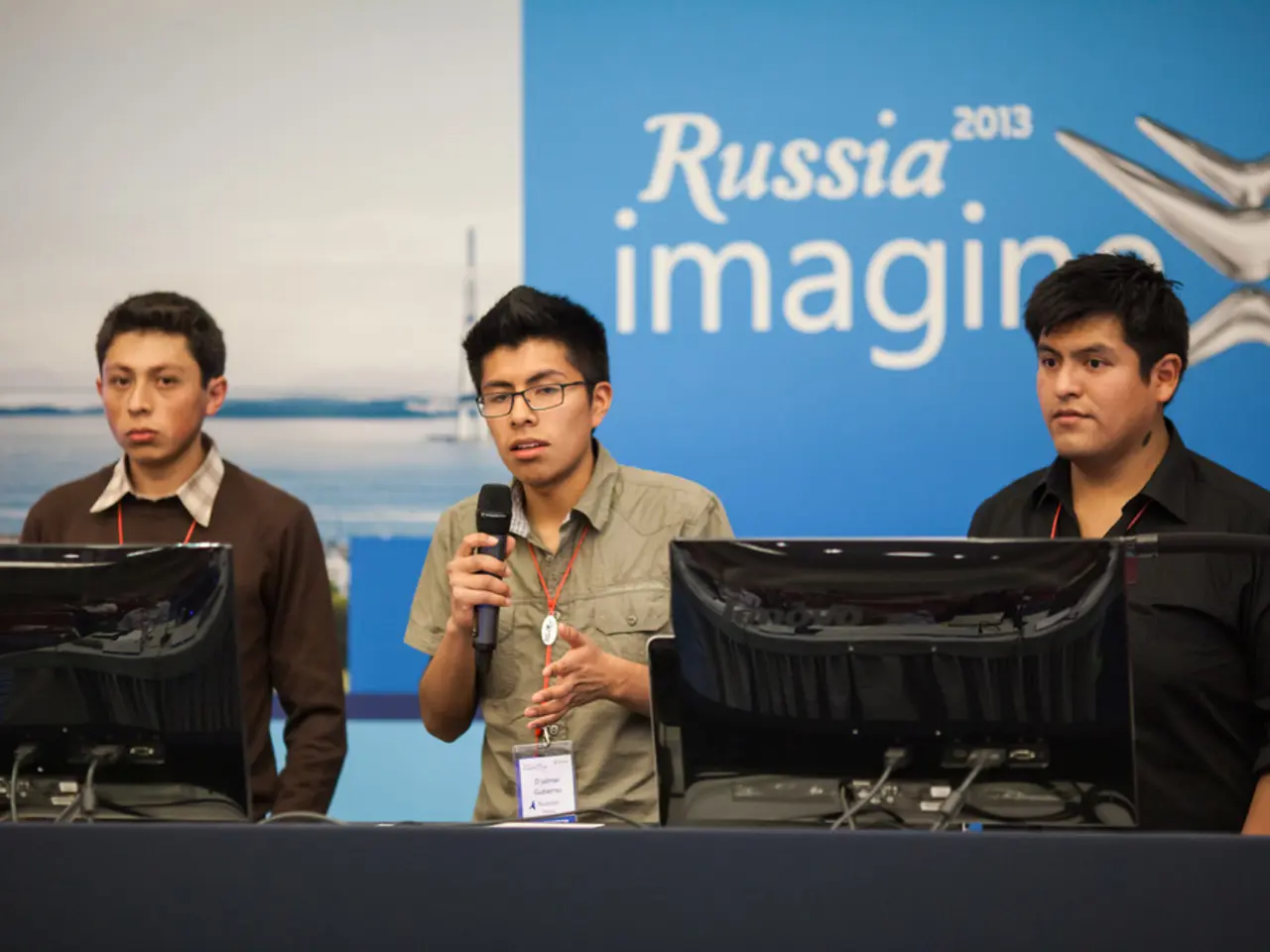AI Transforms Media and Entertainment Industry, Bringing Revolutionary Changes
In the ever-evolving world of media and entertainment, Artificial Intelligence (AI) has taken centre stage, revolutionizing the way content is produced, published, and promoted.
Amazon Prime, leading the charge, utilizes AI and machine learning to augment operational efficiencies and craft tailored content through products like Alexa. The technology is also making waves in the media and entertainment industry, where AI agents and copilots are being developed to streamline operations, boost efficiency, and enhance strategic decision-making.
These AI agents and copilots perform a multitude of tasks, including content analysis, audience engagement, compliance and rights management, process automation, content planning, content distribution and optimization, fraud detection, marketing and content generation, and customer segmentation and targeting for media enterprises.
AI algorithms can even analyze sentiments in the media and entertainment industry to customize content based on audience reactions. A prime example of this is Netflix's adaptive bitrate streaming, which regulates video quality based on Internet connection speed and device capabilities.
Current AI use cases in the industry span content creation, personalized user experiences, production automation, targeted marketing, and immersive technologies. Personalized content recommendations, content creation and automation, enhanced viewer experience, improved audience insights and targeted advertising, gaming and virtual/augmented reality, cost reduction and operational efficiency - these are just a few of the key applications.
For instance, AI algorithms analyze individual user behavior and preferences to suggest TV shows, movies, music, and other content that align closely with each viewer’s tastes. Examples include Netflix’s and Disney+’s sophisticated recommendation engines that use machine learning and natural language processing for granular tagging and dynamic user profiling.
AI also assists in generating scripts, video editing, graphic design, and even selecting best footage automatically, streamlining production workflows and reducing time and costs while maintaining high quality.
Moreover, AI powers interactive content features, chatbots, voice recognition tools like Siri and Alexa, and adaptive social feeds that respond to user moods and emotions, creating more immersive and engaging experiences.
By analyzing large datasets on audience behavior and trends, AI enables informed decision-making and highly targeted advertising campaigns that improve marketing ROI. Disney, for example, uses AI-driven advertising platforms that go beyond demographic targeting to optimize ad delivery.
In the future, trends such as hyper personalization, AR and VR, AI-generated avatars and virtual news anchors, AI automation in live broadcasting, and detection of deepfakes are expected to shape the industry. AI technologies will also play a pivotal role in shaping the future of mobile app development and generating new opportunities in the media and entertainment industry.
As an entertainment app development company, Appinventiv specializes in immersive technology and AI development services to strengthen businesses in the media and entertainment ecosystem. AI in podcasting can make audio editing more efficient and swift, and can generate subtitles for viewers with hearing impairment.
AI-powered NPCs (Non-Player Characters) in gaming demonstrate complex behavior and adapt to player action. Voice recognition is a subset of NLP (Natural Language Processing) that helps transform mobile app interactions to facilitate tailored experiences and hands-free control.
The US leads the global streaming market, expected to reach $75.5 billion by 2027. AI shines brightly in the media and entertainment industry, particularly in domains like book publishing, AR & VR, Movies, Music, and podcasts. A new app, Gullybeat, allows street rappers to showcase their talent and discover new music with interactive designs and typography.
In summary, AI is reshaping media and entertainment by making content smarter, more personalized, efficiently produced, and immersive, thus transforming how companies engage with their audiences and optimize their operations.
Product engineering in the media and entertainment industry is significantly impacted by AI, leading to the development of advanced AI agents and copilots for tasks such as content analysis, audience engagement, compliance and rights management, and content distribution optimization.
Moreover, machine learning is being used in mobile app development to generate AI-powered NPCs (Non-Player Characters) in gaming, voice recognition tools, and interactive content features, thereby revolutionizing user experiences.




